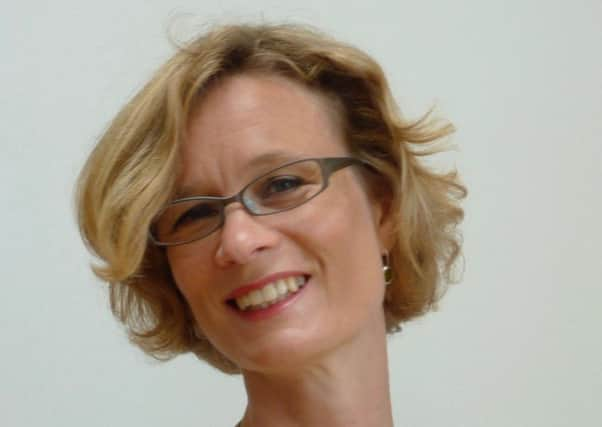Fran van Dijk: Pollution needs to be paid for – keep our planet pristine and we all win


However, as climate change and biodiversity loss escalate, we’re learning the hard way that these natural capital assets give us our agriculture and our climate, and the raw materials that underpin our industries.
The role of natural capital in our future is the focus of the 42nd TB Macaulay Lecture, Green and Prosperous Land. To deliver it, the Macaulay Development Trust and the James Hutton Institute are delighted to welcome Dieter Helm CBE, professor of Economics at the University of Oxford and Fellow of New College, Oxford. Professor Helm will explain that it’s time to move away from the notion that there is an apartheid between environment and economy – with the environment being something we can make good after we have become wealthy enough to afford it. Rather, he will say, it is the other way around.
Advertisement
Hide AdAdvertisement
Hide AdThis year, the Macaulay Development Trust and the James Hutton Institute are also delighted to welcome the Scottish Government’s Cabinet Secretary for Finance, Economy and Fair Work, Derek Mackay MSP, to join the discussion on inclusive, sustainable economic growth. Derek Mackay has responsibility for Scotland’s economy, jobs, skills and most importantly, controlling and allocating the Scottish budget. As such, he will offer a unique and thoughtful perspective on the issues raised in Professor Helm’s keynote speech.
Finding the balance between a sound economy and healthy environment also lay at the heart of TB Macaulay’s decision to establish the Macaulay Soil Research Institute (now part of the James Hutton Institute) and endow the Macaulay Development Trust, which makes Professor Helm’s lecture possible.
Using his endowment, the Trust builds on his vision and supports excellent research into the sustainable use of land and natural resources for the benefit of people, their communities and the environment. To check we’re actually making a difference, we aim to measure the scientific, environmental and social impact of our grants.
Land use and agriculture are an important part of the 25-year plan for a Green and Prosperous Land that Dieter Helm will lay out during his lecture, because around 70 per cent of the UK’s land is farmed. Since the end of the Second World War, the dash for ever more intensive and chemically-dependent production has gone in tandem with the loss of carbon from the soils, peat bogs and coastal marshes, and the loss of habitats to support our biodiversity.
Chemicals flow into rivers, estuaries and our seas. They pollute our air, and they choke out wildflowers. Out of sight, most of our biodiversity is below our feet, and carbon in soil is a good proxy for this biodiversity.
This immense damage comes with costs, slowing our economy. We pay to take the chemicals out of our drinking water, restock depleted rivers and restore marine habitats. We pay for the health consequences, for the obesity and the mental problems that lack of access to green space has encouraged. We pay for hard flood defences and for the silting of our rivers.
It does not need to be like this. Protecting and enhancing our natural capital are amongst the highest return investments we can make. The costs are almost always low; the benefits are often immediate and can be very high. In an efficient and prosperous economy, the key flaws in markets need to be addressed. Public goods need public money, and pollution needs to be paid for, so all costs are internalised.
Recent support for Scotland’s net-zero carbon target by 2045, the surge in public interest in climate action and reversing plastics pollution, and the increasingly vocal drive by pioneering industry leaders for a prosperous, green future all indicate that we have reached a turning point.
Advertisement
Hide AdAdvertisement
Hide AdThe pace and scale of change will be disruptive and for farmers, this will be challenging in the short term. But as a host of new technologies emerge that are both environmentally benign and less land-intensive there are many reasons to be positive. For more information, visit www.macaulaydevelopmenttrust.org
Fran van Dijk chairs the Macaulay Development Trust, a charity which supports research into the sustainable use of land and natural resources.